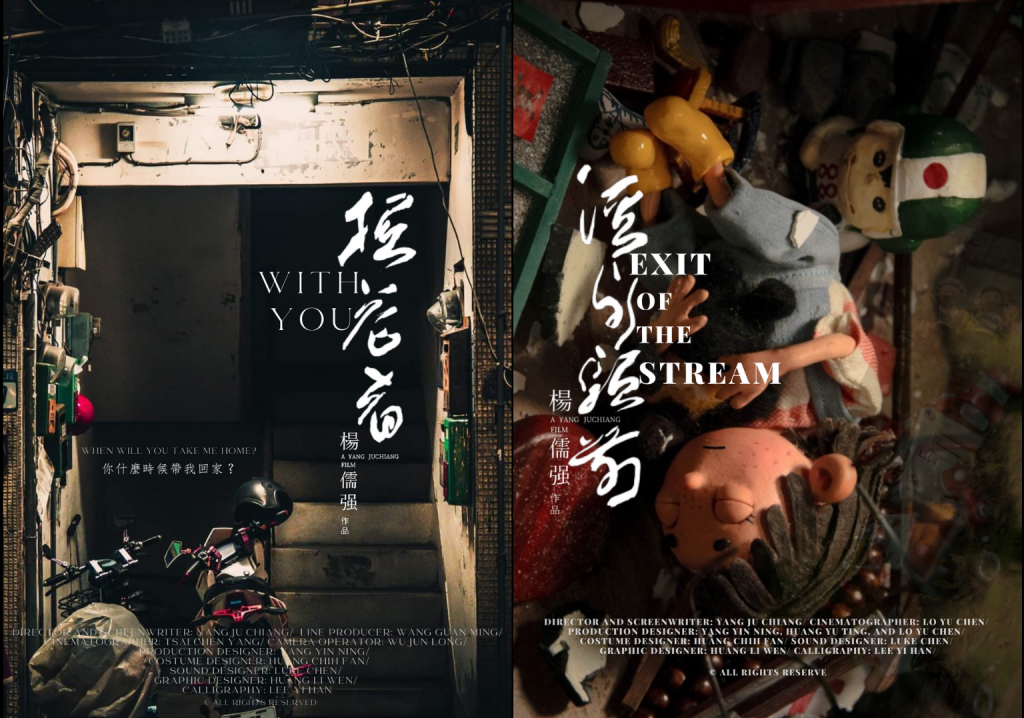THE INTERVIEW
June 10th, 2023
YANG JU CHIANG
DIRECTOR OF WOOING
BEST DIRECTOR
Now, I work as a film and theater director, and in addition, I am also an assistant professor teaching in the
Department of Digital Multimedia at Lee Ming Institute of Technology in Taiwan (R.O.C.).
I can hardly believe that I’ve made it this far I’m thrilled to say that I am now a director. It has been a long
and arduous journey, but the rewards are immeasurab le. Looking back, I cherish my college days studying
theatre playwriting at Taipei National University of the Arts. My studies in college and graduate school taught
me the art of theatre playwriting , but I always yearned to direct. However, I struggled with self doubt and a
lack of confidence in my abilities. Though I enjoyed theatre playwriting immensely, deep down, I knew that
my true passion also lay in the world of film. I spent countless hours watching movies, studying the works of
my favorite directors, and honin g my own filmmaking skills.
It was certainly not an easy path, but my unwavering passion and determination kept me going. I knew that I
wanted to be a director and was willing to do whatever it took to make that happen. I am deeply grateful to
the Hakka Affairs Council, the Taipei Ci ty Arts Promotion Office, and the Department of Cultural Affairs in
Taoyuan City for providing me with the opportunity to participate in theatre work in Taiwan as a director. I
am also appreciative of High Plus, Taiwan. I Creative, Zac Studio, and WenVison for allowing me to explore
film directing. Both theatre and film have played an essential role in my growth and development, and I will
continue to strive to complete my creative work, no matter where I find myself.
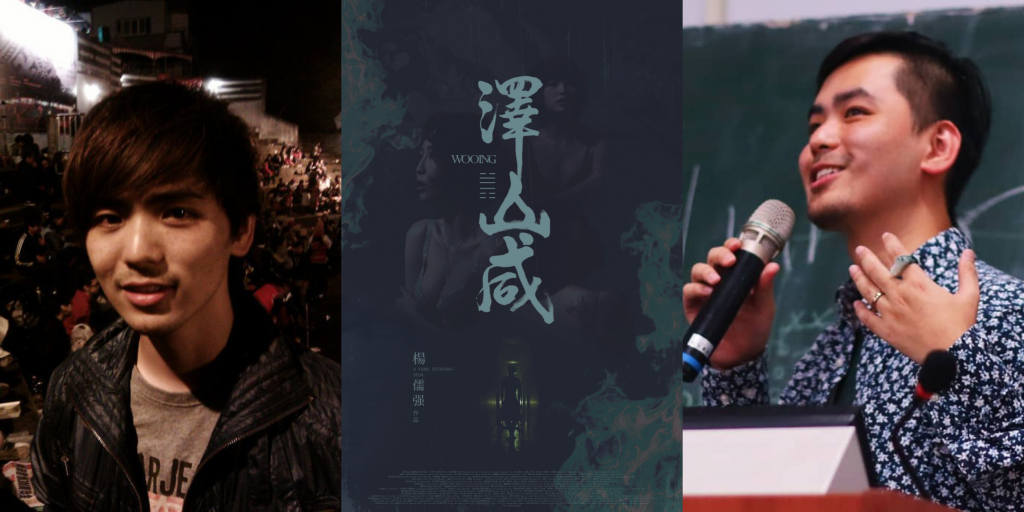
As a director, I am greatly interested in exploring the intricacies of human nature, and I have found inspiration
from various sources, incl uding the concept of the Oedipus complex, desires, emotional flow, sexuality, and
the rich cultural heritage of the East, particularly the art of tea.
The Oedipus complex is a psychological phenomenon that speaks to people’s fascination with taboo or risky
behavior, making it a captivating theme to explore in a film. Such themes can be used to delve into the more
intricate aspects of human nature and to examine the complexities of human desires and behaviors.
In my exploration of Eastern culture, I have discovered the rich cultural heritage of tea, which not only serves
as a beverage but also a symbol of many things, including peace, contemplation, and spirituality. Tea culture
has also provided me with abundant inspiration to explore emotions and the flow of feelings through its diverse
practices and ceremonies, which are highly useful in creating immersive visual and sensory experiences on
the screen.
Through examining these themes, I have realized that desires and sexuality are universal themes that can be
explored through the lens of Eastern culture. These elements can add depth and complexity to characters and
storylines, creating interesting tensions and conflicts that drive the plot forward.
Overall, the themes of the Oedipus complex, desires, emotional flow, sexuality, and Eastern tea culture provide
me with an array of captivating themes and visual imagery to draw from in my filmmaking endeavors.
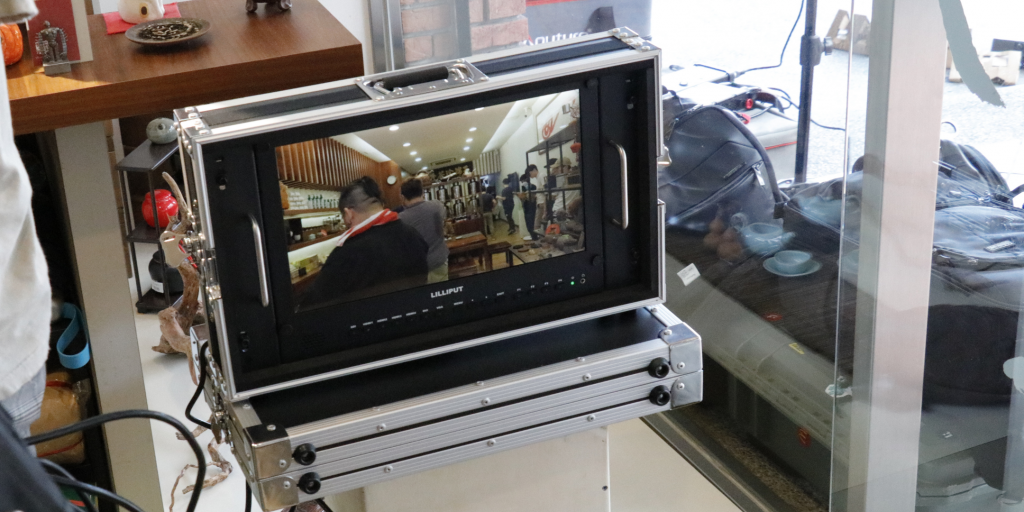
Yen is a young man who has been profoundly influenced by his mother. As he grew up, she was his source of love and strength, and he looked up to her in every way. Howeve r, after a devastating fire left his mother with severe burns all over her body, Yen has been struggling to come to terms with her altered appearance.
Yen’s mother was once a beautiful and confident woman. It breaks Yen’s heart to see the toll that the accident has taken on her, and he finds it challenging to find the right ways to comfort her. He wishes he could alleviate her pain and restore her to the person she once was.
Despite his own distress, Yen remains committed to supporting and caring for his mother. He hopes to honor her strength by being the best son he can be. However, he ended up choosing the wrong way.
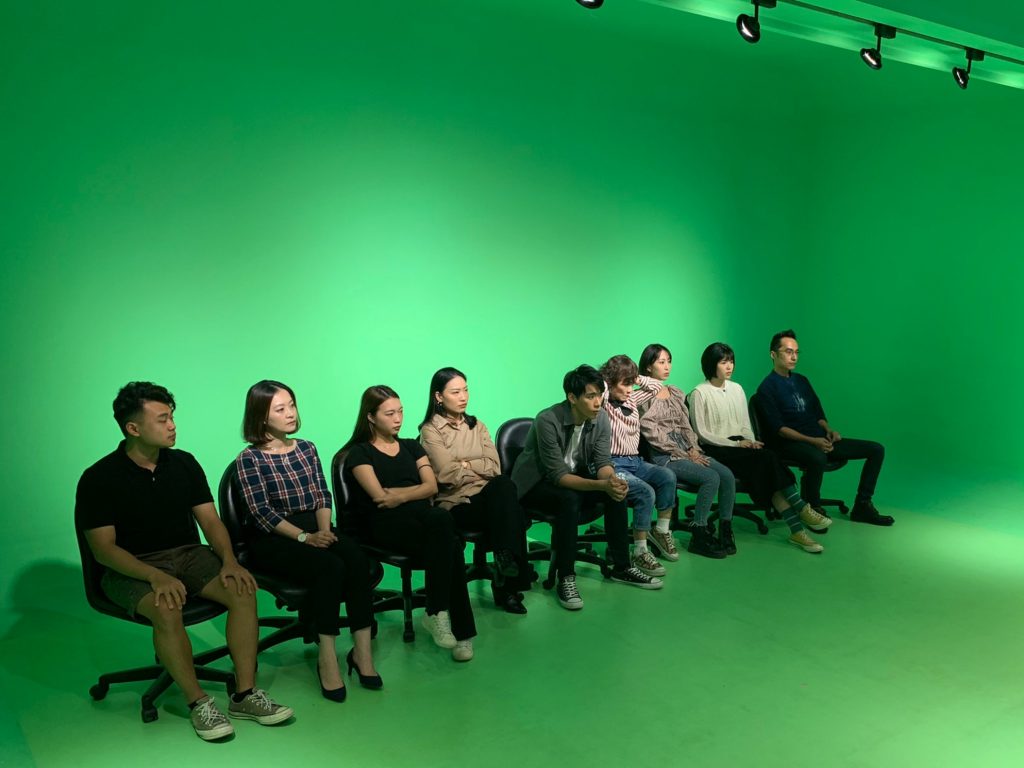
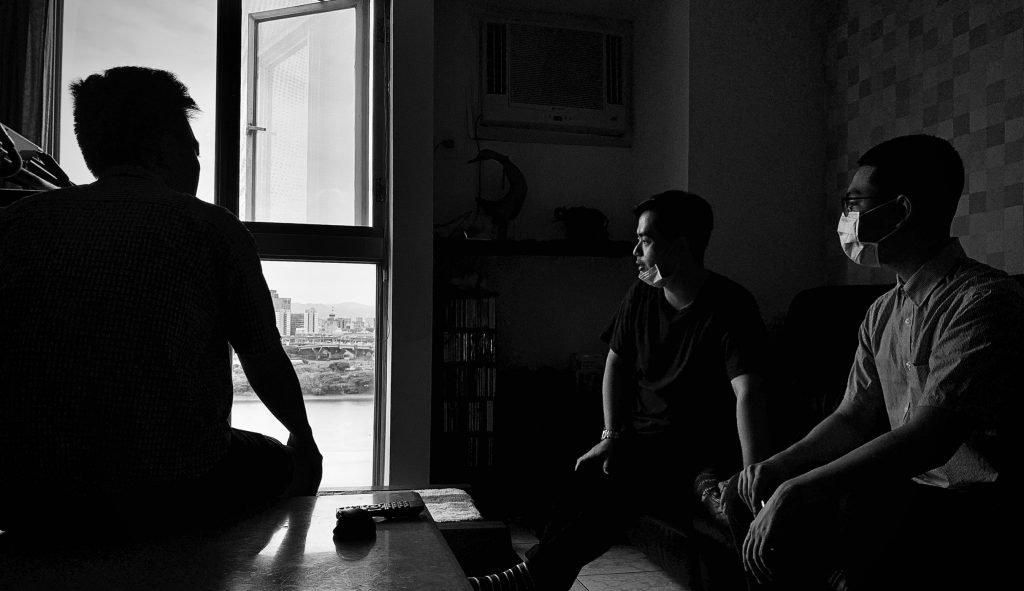
How did you work with the actors ?
My approach to working with actors involves a few key elements. First and foremost, I believe in thoroughly analyzing the script and the characters in order to gain a deep understanding of their motivations, desires, and relationships. This allows me to provide the actors with a clear vision of the st ory and the roles they play within it.
Once we have a shared understanding of the material, I like to schedule intense rehearsal periods where we can experiment and explore different ways of approaching scenes and character interactions. During this time,
I encourage the actors to take risks and try new things, knowing that we can always adjust and refine the performance as we go.
Finally, on set, I try to create an environment where the actors feel free to continue experimenting andexploring their chara cters, while also providing them with clear guidance and feedback as we work througheach scene. I find that this combination of intensive preparation and freedom to try new things on set helps tocreate a dynamic and authentic performance that truly bring s the characters and story to life.
I am greatly interested in exploring the intricacies of human nature
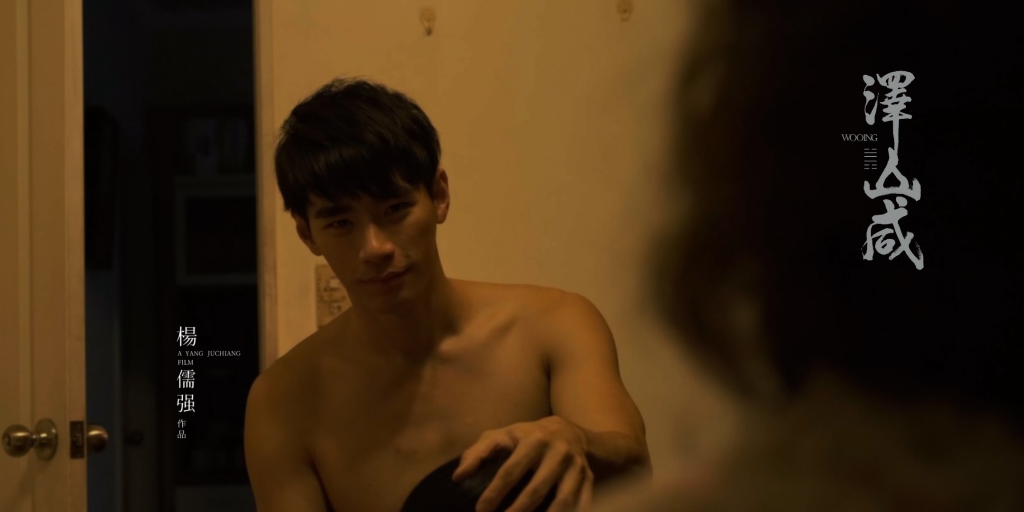
Winning the Best Director award at the RED MOVIE AWARDS in France was an unexpected and incredibly exciting moment for me. I am truly grateful for the recognition of my work and the effort my team has put into bringing the film to life.
I believe that every film is a team effort, and this award belongs as much to my cast and crew as it does to me. I am fortunate to have worked with such talented and dedicated individuals who put their hearts and souls into the project, and I am truly honored to have had the opportunit y to collaborate with them.
I would also like to express my sincere gratitude to the organizers of the RED MOVIE AWARDS for their support of independent cinema and for providing a platform for filmmakers to showcase their work. This award is a testament to their commitment to promoting and celebrating the art of filmmaking. I am truly humbled and grateful, and I look forward to continuing to create and share my work with audiences around the world.
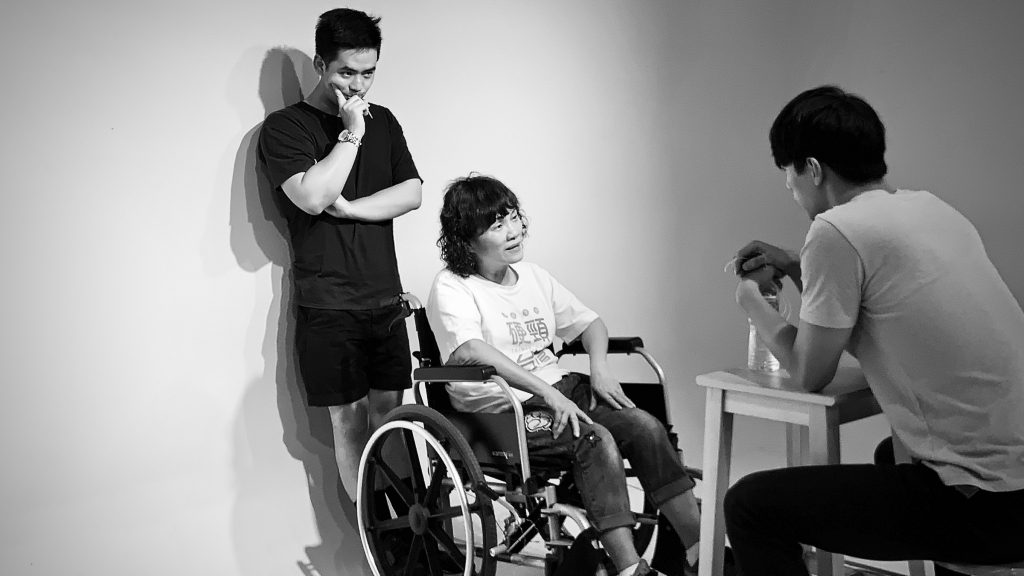
I strive to approach my work as both a writer and a director with the utmost respect and care. To ensure that my creative vision is fully realized, I immerse myself in extensive reading of Eastern aesthetics and philosophy, which is a personal passion of mine. Additionally, I never shy away from questioning my own ideas and instincts, in order to ensure that I am tru ly creating the best possible work.
During rehearsals, I visualize the camera angles and carefully consider the placement of each shot, to ensure that the actors’ performances are captured in the most effective and visually stunning way possible. I work closely with the actors to provide them with the space to explore their characters and bring their own interpretations to the role, while also providing clear guidance and direction to ensure that their performances are within the parameters of the vision.
I believe that collaboration is key, and that every member of the creative team brings something unique and valuable to the table. I am endlessly grateful for the opportunity to work with such talented and dedicated individuals, and I could not have achie ved my creative vision without the support of the entire team.
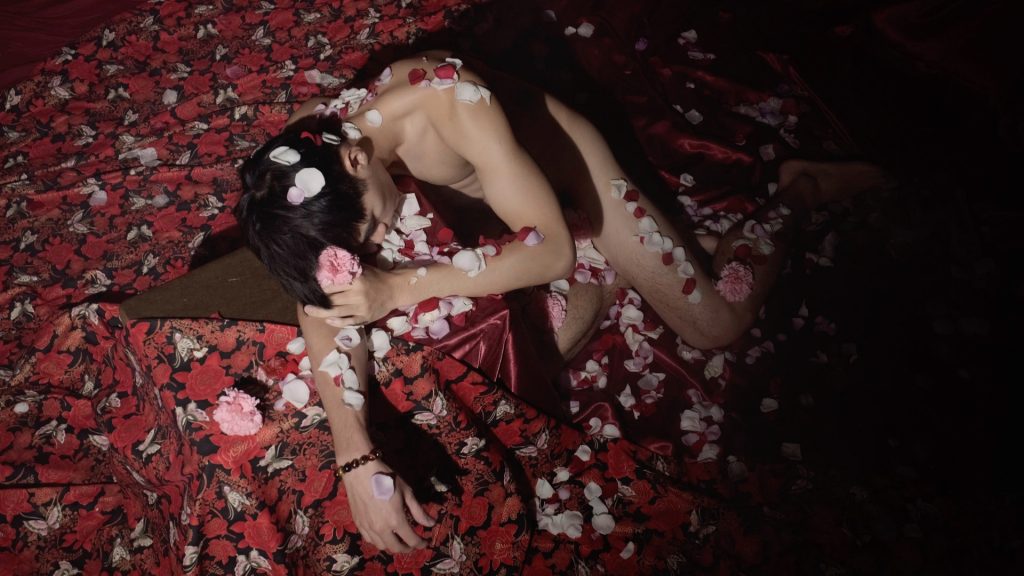
I believe in thoroughly analyzing the script and the characters in order to gain a deep understanding of their motivations, desires, and relationships. This allows me to provide the actors with a clear vision of the st ory and the roles they play within it.
There is a notion of eroticism in your film, we really appreciate the way you film the bodies. There
is a certain poetry to it, why this choice ?
I approach the positioning of sex scenes in my films with the utmost care and attention. I draw on the ancient Eastern philosophy of the “I Ching” as a guide for the placement and composition of these intimate moments. The ” I Ching” is an ancient Chinese text used for divination, but it also contains a wealth of philosophical ideas that I find deeply inspiring.
The poetic nature of the “I Ching” philosophy lends itself well to the portrayal of sexual intimacy on film. Throug h careful consideration of the principles of balance, harmony, and movement in the “I Ching,” I aim to create sex scenes that are both beautiful and meaningful.
Of course, I always work closely with my actors and crew to ensure that these scenes are approached with sensitivity and respect. I strive to create an environment where actors feel comfortable and safe to explore their characters’ emotions and desires, while also adhering to the artistic and narrative requirements of the film.
Ultimately, my goal is to use the “I Ching” and other philosophical influences to elevate the artistry and emotional depth of the films I create.
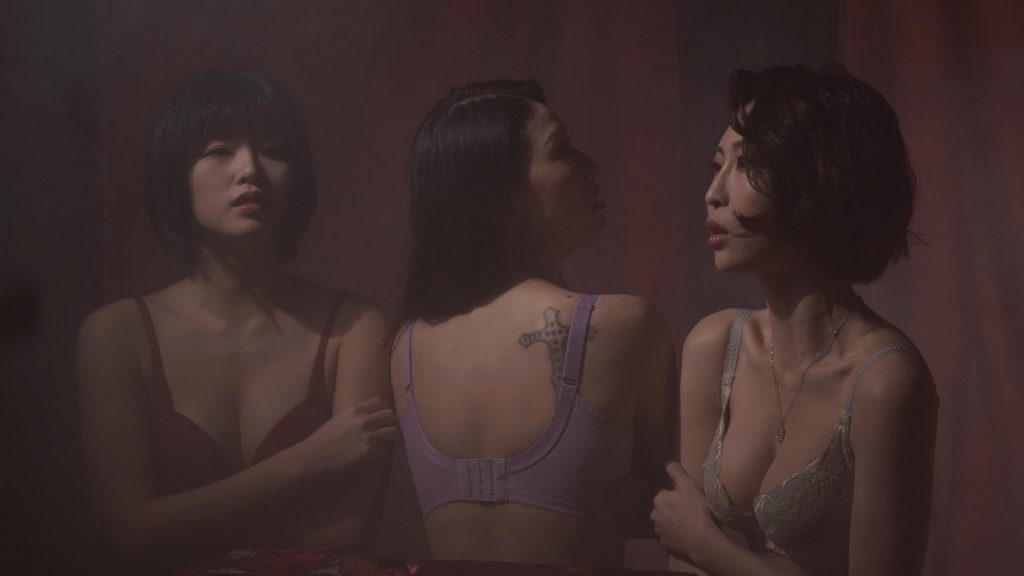
What was your biggest challenge on this film ?
During the filming of this movie, I encountered two significant challenges. The first was the actors’ performances, which required a high degree of precision to capture every nuance in each shot, making it quite challenging. I had to ensure that I captured the exact performance I was looking for from each actor, even when they could not deliver an identical performance every time. When actors did not perform as expected, I guided them by recalling the emotions and expressions they demonstrated during rehearsal to enhance their performance.
The second significant challenge was the unstable weather conditions. The movie was filmed during Taiwan’s cold and rainy winter, which posed many unpredictable weather disruptions, particularly for outdoor scenes. Coordinating the team’s schedule while waiting for the weather to improve was quite challenging for me.
Despite these challenges, I am proud to say that we were able to complete the movie successfully. The final result is a testament to the dedication and hard work of the cast and crew, who worked tirelessly to overcome these obstacles and deliver an excellent production.
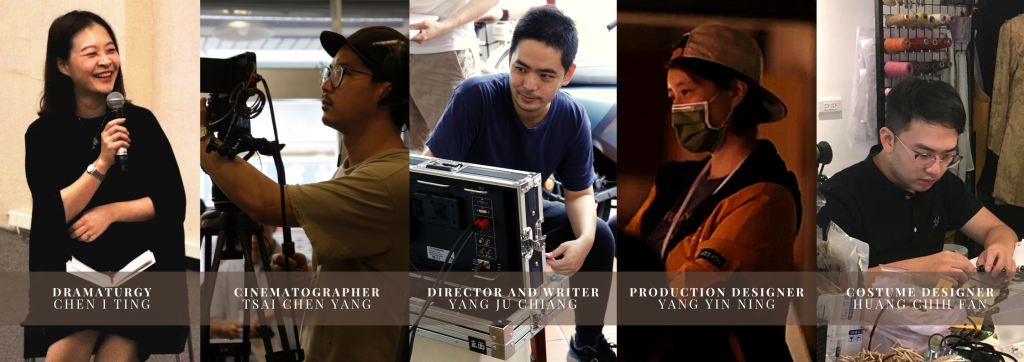
What is your next project ?
I am delighted to have the opportunity to direct two new films in the near future: a feature film
title d “With You” and a stop motion animated feature titled “Exit of the Stream.”
As the director of “With You,” it is my utmost pleasure to share that this film is based on a true story. In addition to exploring the themes of Taiwan’s local history and elderly care in an aging society, we also delve into the heartbreaking reality of elderly dementia. This story has already had a profound impact on people’s lives, and I feel honored to adapt it for the screen. Our message is that tragedy can strike at any moment, and it is happening all around us. Through “With You,” we aim to raise awareness of the issue of elderly care and encourage audiences to treasure ever y moment they have with their loved ones.
In addition to “With You,” I am also thrilled to be directing a stop motion animated feature, “Exit of the Stream.” It is a touching tale of a young girl who survived a devastating earthquake in Taiwan, protected by her brother and grandmother. The film will take viewers on a journey, beginning with the girl’s imaginative story and culminating in the harsh reality of her brother and grandmother’s passing. I feel honored to bring this unique and meaningful story to life through the stop motion animation technique.
When I am not directing, I will be teaching at the Department of Digital Multimedia at Lee Ming Institute of Technology in Taiwan. This teaching environment provides me with a space to adjust my creative f ocus and take a break from the stresses of production. I am grateful for the opportunity to share my experience and creative skills with my students, and I look forward to contributing to their growth as artists in any field.
